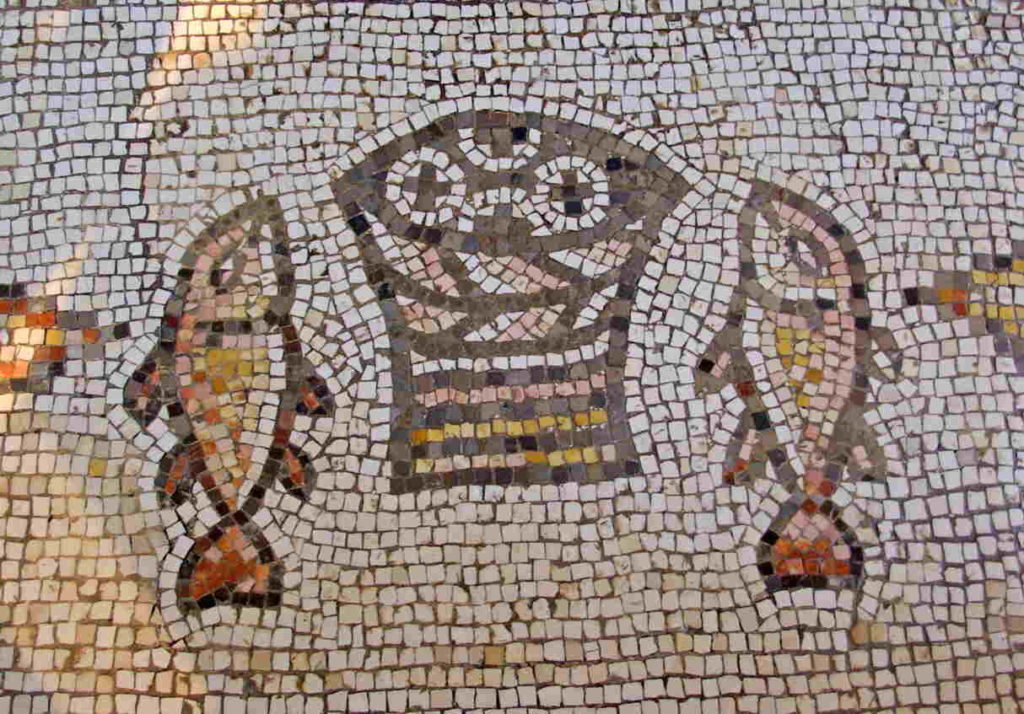
We can never know for sure, but I see some reasons you may never have considered. I want to share with you some insights I feel will draw you closer to our Jewish roots, give you a greater sense that God is always with you and resolve what looks like a contradiction in Scripture.
Jesus does not teach us Charity… but Tzedakah
What was the blessing Jesus gave to God over the bread and fishes?
It is not stated directly in Scripture but I believe it was similar to one the apostles and those gathered would have known, but which Christians do not. The one blessing God commanded Jews say to Him over the bread on the Sabbath.
בָּרוּךְ אַתָּה ה׳ אֱלֹהֵינוּ מֶלֶךְ הָעוֹלָם הַמּוֹצִיא לֶחֶם מִן הָאָרֶץ
Baruch atah Adonai eloheinu melech ha-alom ha-motzi lechem min ha-aretz
“Blessed are you, Lord our God, ruler of the universe who brings forth bread from the earth.”
This prayer shows the foundation of biblical Righteousness, “Tzedakah”. The certain knowledge that all we have comes from God. The prayer inaugurates the holiest time of the week, the Friday evening which begins the Sabbath.This blessing focuses them on the critical fact that all they have, materially, emotionally and spiritually belongs to Him. In this way Jews are commanded to dedicate all of themselves to holiness on the Sabbath.
The knowledge that all that we have does not belong to us but to God is the beginning of tzedakah, which most Bibles translate as righteousness.
Jesus had compassion on the crowd which was gathered, but it was not on a whim He acted to provide for them. Rather He knew that what God the Father had provided did not belong to Him but to the Father.
By opening with a blessing upon the bread and fish Jesus is reaffirming to the people gathered that everything belongs to God.
Tzedakah also demands direct action. It demands we take responsibility for those less fortunate than ourselves. Now in our worldly knowledge this can seem, to be blunt, impossible. The world has so many problems, with so many in need or living broken lives. How can we possibly fix them all?
This was the attitude of the disciples, who reacted in a worldly way,
By this time it was late in the day, so his disciples came to him. “This is a remote place,” they said, “and it’s already very late. Send the people away so that they can go to the surrounding countryside and villages and buy themselves something to eat.”
But he answered, “You give them something to eat.”
They said to him, “That would take more than half a year’s wages! Are we to go and spend that much on bread and give it to them to eat?” Mark 6:35-37
Jesus is giving what seems to be an impossible demand. But He is commanding they be proactive in accordance with biblical righteousness.
How confused would you be in this situation?
Imagine spending the day in the beating desert heat, completely exhausted, hungry and thirsty yourself, being shown five thousand people and being told,
“Go and feed those people, but you aren’t allowed to use money or stores.”
The disciples had faith and did as they were told, now lets look at how Jesus uplifted them emotionally and spiritually through the miracle.
And how He will uplift you
God Will Multiply the Miracle
Is there a contradiction in Scripture here?
In Mark 6:41 we read,
“Taking the five loaves and the two fish and looking up to heaven, he gave thanks and broke the loaves. Then he gave them to his disciples to distribute to the people.”
So it’s the disciples handing out the food, okay. But then in John 6:11 we read,
“Jesus then took the loaves, gave thanks, and distributed to those who were seated as much as they wanted.”
So who distributed the food, the Apostles or Jesus?
Well we know that not one word of God’s contradicts any other word. There are no contradictions anywhere in God’s Word. Thinking it does is how toxic ideas like Replacement Theology spread. Both of these accounts must be true.
But how?
Join us next week, as we continue by answering this question.
